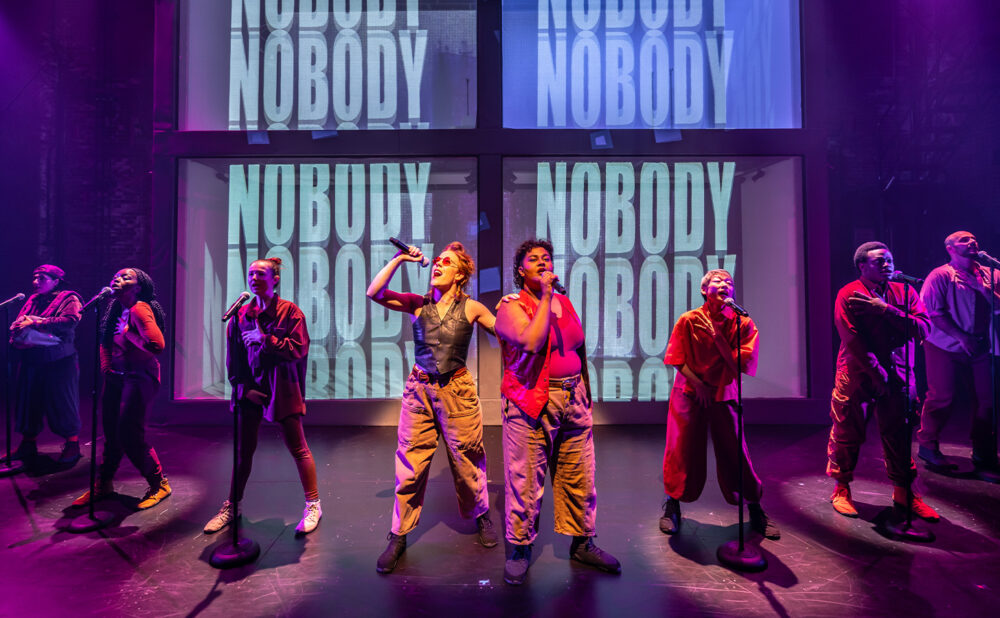Review: ‘Universal Child Care’ at Canadian Stage shines when it slows down
Quote Unquote Collective premieres devised creation about lack of affordable child care
What: Universal Child Care
Where: Berkeley Street Theatre, 26 Berkeley St.
When: Now, until Sun., Feb. 25
Highlight: An impassioned ballad sung by Joema Frith
Rating: NNN (out of 5)
Why you should go: Amy Nostbakken’s production brims with ambition and ideas.
FOUR open-faced white cubes stacked two on two provide the towering playing space for the world premiere of Quote Unquote Collective’s Universal Child Care at Canadian Stage.
The physical theatre company, best known for its 2015 work Mouthpiece, uses Lorenzo Savoini and Michelle Tracey’s quadripartite set to dig into the troubling statistics surrounding (un)affordable childcare in four countries: the U.S., England, Japan and Canada. Amy Nostbakken and Norah Sadava’s script attacks this rather specific subject matter on all sides in an approach that ranges from abrasive stand-up set to a capella concert to hyperspeed monologue. Despite struggling on the cohesion front, Nostbakken’s production brims with ambition and ideas, ideas, ideas.
The devised creation is billed as “part concert, part theatre play.” Yet a key anchoring device comes in the presence of Theresa (Mónica Garrido Huerta), a nanny-turned-comic who serves as a sort of MC, linking the various vignettes with narration — or interrupting them — ensuring the audience doesn’t get so swept up in the music they forget their complicity (as she points out early on, any parents in the audience have significant privilege because they’re able to afford both child care and theatre tickets).
Cantaloupe-sized glowing orbs stand in for children, which points to the kind of creative, non-literal stagecraft that’s everywhere in Universal Child Care. Even when the show’s focus is on the characters living in one of the four countries, choreographer Orian Michaeli ensures the parents in the other boxes keep moving (the cast is made up of eight performers), cradling their children and going through sped-up versions of their mundane day-to-day routines.
Does the show manage to push beyond lamentation? Only occasionally. Theresa does something to implicate the audience, though perhaps not as directly or aggressively as I’d like; overall, the politics of Universal Child Care are quite agreeable. So, it almost comes as a relief when the show eventually embraces that it’s mainly just a big vent session, designed to offer frustrated parents a hit of catharsis.
It’s likewise the back half of the 90-minute show that’s most settled. The opening portion is frenetic, running from idea to idea without exploring any fully (despite its attempts, the show doesn’t even feel like a concert). So, when quiet moments like an impassioned ballad sung by Joema Frith surface, it’s a real salvation. An exhale.
In cities with more robust traditions of developing and staging devised physical theatre, the dramaturgical issues present in Universal Child Care would be a deal-breaker. But in Toronto, where expensive premieres of innovative collective creations remain uncommon, the show still feels fresh — barely.







